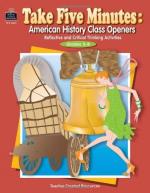|
This section contains 903 words (approx. 4 pages at 300 words per page) |

|
Sources:
Westminster Assembly, The Shorter Catechism (Cambridge, Mass., 1803), pp. 3, 5;
William Ellery Channing, Elements of Religion and Morality in the Form of a Catechism, second edition (Boston, 1814), pp. 7, 12.
Unitarian Belief.
Morse used the word Unitarian more for its shock value than as an accurate label. Unitarians denied the doctrine of the Trinity, that the one God is manifested in three divine persons—the Father, Son, and Spirit. This is such a fundamental part of Christianity, and so central to the interpretation of the Bible at that time, that orthodox Trinitarians saw Unitarianism as a radical attack on all religion. To people like Morse it was little better than deism or atheism. There had been Unitarians in Boston for some time before the Unitarian Controversy opened. King's Chapel, Boston's Anglican Church before the Revolution, became a Unitarian church in the 1780s. In 1785 James Freeman, the church's...
|
This section contains 903 words (approx. 4 pages at 300 words per page) |

|




